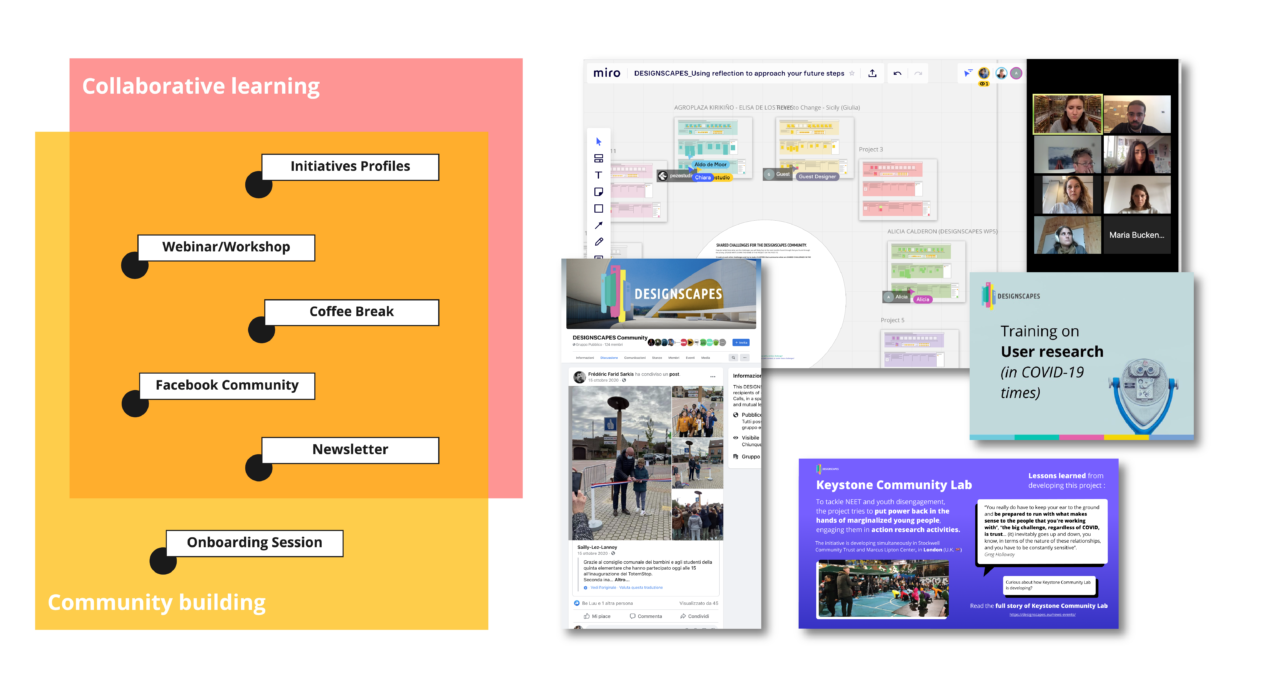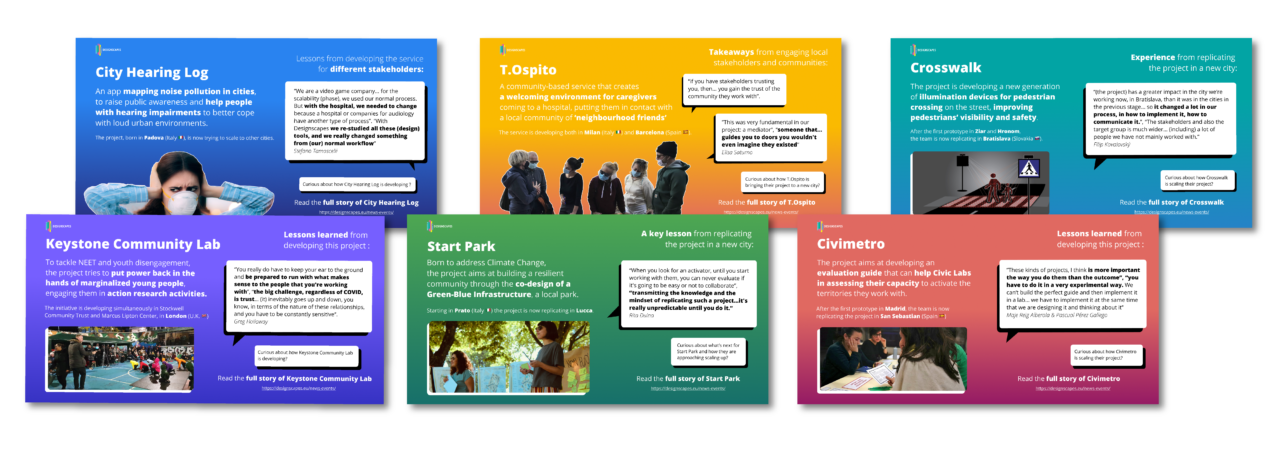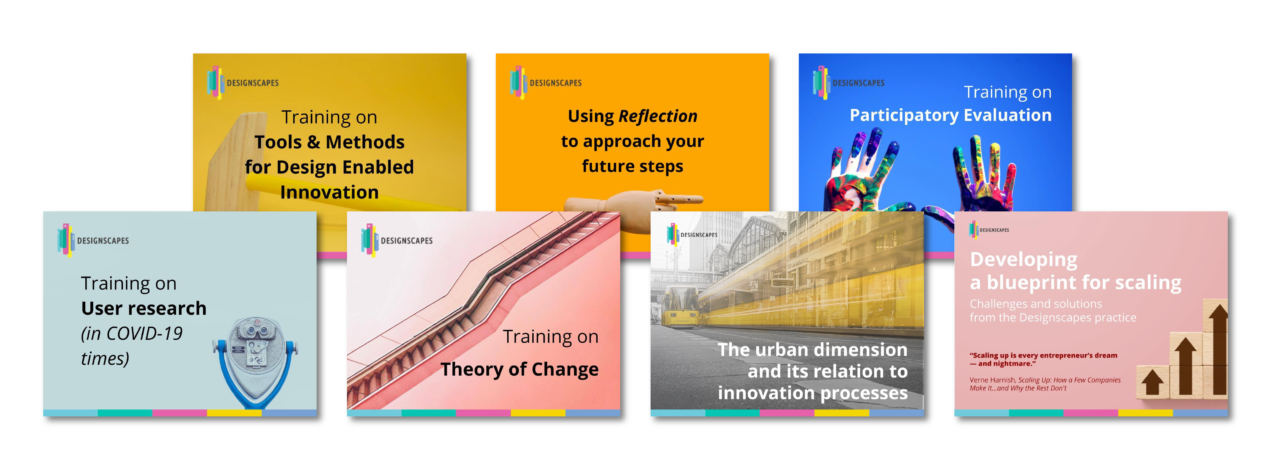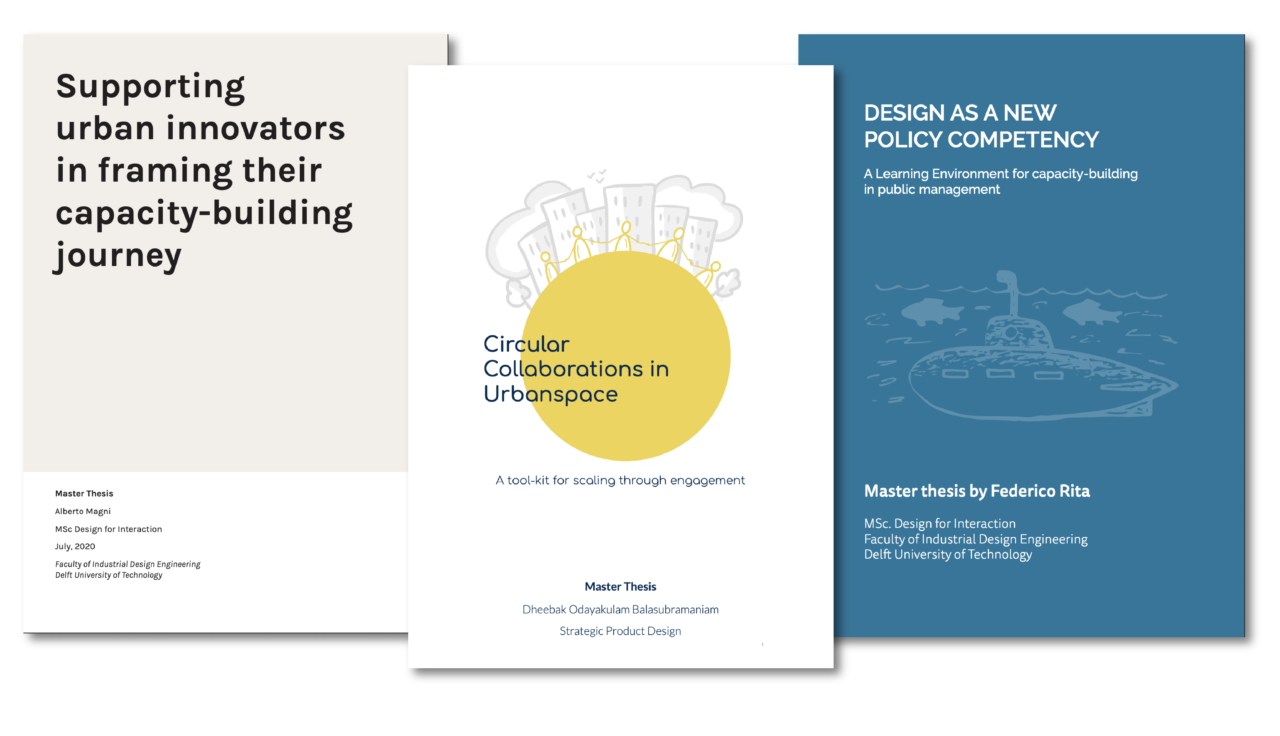DESIGNSCAPES Building Capacity for Design enabled Innovation in Urban Environments
Jun 2017 - ongoing
How can we generate societal impact through design? The H2020 project DESIGNSCAPES aims to ignite the transformative power of design for sustainable and responsible innovation in European cities. With a maturing design discipline, increasingly gaining popularity outside the design domain, the focus is no longer on designing meaningful products and services only, but also on facilitating processes of systemic change; creating societal impact through design.
‘Many design proposals aiming for mission-driven innovation, do bring new perspectives in a particular context, but face difficulties in the actual implementation or in demonstrating impact,’ IDE project lead Ingrid Mulder says. ‘Even, successful design solutions that are well-embedded in one urban context, cannot easily be replicated to other cities or institutionalized to scale their impact and make a systemic change’.
As the only project awarded within the call CO-CREATION-02-2016 – User-driven innovation: value creation through design-enabled innovation, the DESIGNSCAPES project has the specific mandate to distribute 1.5 million euros of its 4 million grant to a hundred local design initiatives, ranging from feasibility studies to scalability proofs. Next to the direct financial support to creative consortia (of citizens, researchers, practitioners, innovators, and policymakers) to develop, prototype and ultimately scale their idea, DESIGNSCAPES offers a capacity building program to demonstrate the potential of Design enabled Innovation as an example of innovation in which the involvement of users in the process is key and the resulting innovation is more successful thanks to co-creation.
Using a systemic research-through-design approach, DESIGNSCAPES gathers insights in non-linear, multi-level, and networked design-enabled innovation processes to demonstrate, on the one hand, the impact of design-related policies and programmes, and on the other hand to develop a transferable methodology for building capacity to achieve a better uptake, further enhancement and upscaling, of Design-enabled Innovation throughout Europe. In doing so, the project fosters linkages between research, policy, and practice, while contributing to a stronger position of Design on the European agenda, as a key methodology to address the sustainable development goals.
The PCM lab leads the development of the capacity building programme. Our research approach is twofold. On the one hand, the lab investigates the ‘next’ capabilities for these local innovators to develop and scale their social and urban innovation processes. On the other hand, to understand how to provide appropriate training, by moving away from a tool-and methods-prescription-approach towards infrastructuring a community of practice that continues learning in a self-sustaining way, even beyond the program itself.

Who are the innovators in the Designscapes community?
The urban innovation initiatives funded in the program have the common ambition of addressing complex societal challenges, and they do so by triggering social transformations in more than 20 cities across Europe. These multidisciplinary teams address topics ranging from youth empowerment, community resilience, or the liveability of cities to climate change and sustainable consumption. Throughout the capacity building program, the PCM lab got to know them more closely, learning more on what it takes to bring social innovation in cities and how to facilitate a learning network of innovators.

Co-creating a training program for Design Enabled Innovation
The PCM lab co-developed a series of online modules to build capacity for Design Enabled Innovation. In line with the co-creation approach at the base of DESIGNSCAPES project, the lab’s team co-defined relevant topics and activities to be addressed together with initiative’s in the program, learning from their experiences and practices of innovation in cities.

Students opportunities
PCM LAB students have chance to work closely with researchers and collaborate directly with urban innovation initiatives in the program.
Exploring approaches and topics in support of urban innovators’ practices, their projects contribute greately to both activities and outcomes of the project. Exemplary graduation outcomes focused on infrastructuring learning environments for the diffusion of design capabilities, developing reflective tools for urban innovators’ capacity-building, as well as frameworks for scaling circular practices in cities.

Team
Ingrid Mulder
Alicia Calderon Gonzalez
Alberto Magni
Student collaborators
Maya Goodwill (research project)
Federico Rita
Alberto Magni
Dheebak Odayakulam Balasubramaniam
Chiara Marradi
Maria Buckenmayer
Faculty collaborators
Phil Brown
Milene Guerreiro Goncalves
The consortium
The DESIGNSCAPES consortium, coordinated by ANCI Toscana, consists of 12 partners from Bulgaria, Denmark, France, Germany, Greece, Italy, Portugal, Spain, UK, The Netherlands, covering the quadruple helix (associations of municipalities, university departments of architecture and design, business schools, service centers, civil society organizations).

City Making
Lab
A reflective approach to social innovation and regional development
City Making
Lab
Sharing experiences on how to scale collaborations for circular economy in cities
City Making
Lab
Introducing fruitful friction as a strategy to scale social innovations
City Making
Lab
How to finance mission-driven initiatives?
A Community Talk with experts and DESIGNSCAPES innovators on financial strategies for mission driven innovation
City Making
Lab